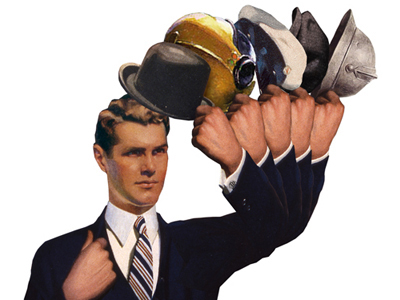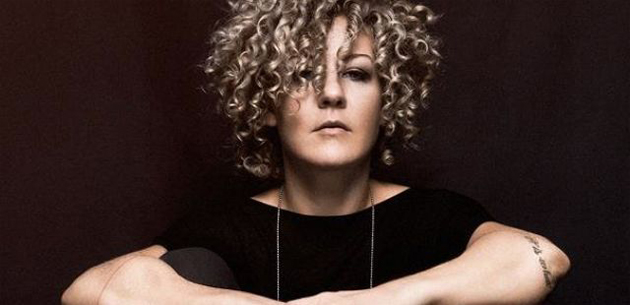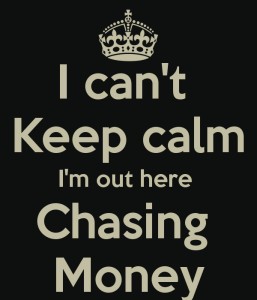
As Chris Alker noted in previous Crossfadr post There is More to being a DJ Than Playing Records. A successful DJ must take on a host of other responsibilities before their actual gig to make sure people know about A) Their music; B) The event itself; let alone C) Show up and dance. It’s a tall list for anyone, but as Chris explains, in order to make it, the multiple hats that a DJ must wear, so to speak, are absolutely essential components to an artist’s success.
You have to know how to brand yourself, which means both establishing an identity for yourself that relates as much to your sound as it does your image. These are composite elements for memorable DJs. Think tINI’s curls and groovemonster sets or Magda’s pixie haircut and dark’n’quirky take on techno. To a greater extent, this applies to all musicians and performers- Madonna and David Bowie built entire careers around their mastery of this art.

tINI
To succeed, DJs also need to know how to promote themselves. This ranges from: strategic collaborations that enable you to cross promote your music- the politics of party planning; graphic design skills that expand the reach of your brand to the fliers your name appears on, to being a social media marketing guru to get your message and music out to the masses. All this said and we haven’t even begun to talk about the process of finding music, reaching out to your favorite artists for unreleased tracks or the art of programming a promo set yet!

Magda
As you can imagine, each of responsibilities that encompass an artist adds an additional layer of stress upon the greater process of establishing yourself as a DJ. At its core, a DJ is an artist and a line must be drawn in the sand once the burden of responsibilities begins to impede on the process of making art itself.
When You Know It’s Time To Get a Manager:
When you first get started, it can be a bit of a challenge to assert yourself when working with venue management and/or promoters. Often times the pay of a “newbie” is the first to get cut should expectations of a night’s success not be met: “We didn’t make enough tonight to pay you, but I will definitely book you again and pay you next time”; “What did we agree on?” and “Are you sure we didn’t agree on a smaller amount” are all phrases heard by folks in the business for over 10 years, in some pretty sketchy horror stories about chasing money after the gig is over. This is a glaring example of when having a manager would be helpful.
 If you’re still a medium sized fish in a small pond, it might make more sense to ask a friend to help you out than hiring a manager to represent you- Someone that doesn’t mind playing the bad cop on your behalf, because you need someone to enforce rules of the game that were agreed upon beforehand. This includes your rate of pay, the length of your set, as well as the necessary gear you need, in the form of a technical rider.
If you’re still a medium sized fish in a small pond, it might make more sense to ask a friend to help you out than hiring a manager to represent you- Someone that doesn’t mind playing the bad cop on your behalf, because you need someone to enforce rules of the game that were agreed upon beforehand. This includes your rate of pay, the length of your set, as well as the necessary gear you need, in the form of a technical rider.
It takes some time before a gig to get into the headspace to play. The last thing you need is a head cluttered with worry. If you find that more of your time is spent on the externalities of securing and performing a gig, than the content of your set itself, then it’s probably time to get a manager. To this end, a percentage of profits that you two agree upon beforehand –on gigs secured, and paid for- will help incentivize your management to hustle on your behalf.
On this note, a word of advice, the solicitation to be managed will always feel good for the ego, but be careful of those who offer their services to manage you and promises of grandeur. More often than not, their eye may be out on a prize for themselves, not necessarily having your best interests in mind. You need someone you can trust; someone whose musical values align with yours; someone who knows how the scene you’re operating in works- not to mention one who has a couple helpful connections in hand.
By hiring a manager you are making another person the face of your music and with that comes great responsibility. Have they managed artists before? If you sign on to be represented by them, will you be joining a crew of existing musical talent? What would this affiliation mean for you and your musical brand; will it be strengthened or weakened by it? A quick glance at big name booking agencies can be helpful in viewing how affiliation can add to your brand. Cocoon, among the first agencies for DJs and live PA performers is legendary in Europe for residencies in Berlin and Ibiza, while Loco Dice’s Artist Alife website offers a high production value promotional video shot in Berlin, promoting their talent as a stylish and cool good-time crew. Meanwhile, smaller scale artist management agencies like the Canadian based Hushlamb Productions, highlight the power of signing onto a collective of artists within a genre of music- minimal techno-, whose credibility is built upon showcasing emerging artists and building a space for acts that operate under the radar of mainstream electronic music.
 These are all questions that should be explored when contemplating the prospect of soliciting management. I highly encourage you to have conversations about your shared philosophies on all things music. Muse on about the industry itself and the music that moves you; your visions for short/mid/and long-term goals, not to mention where you two see yourselves in the greater context of what you seek to build together.
These are all questions that should be explored when contemplating the prospect of soliciting management. I highly encourage you to have conversations about your shared philosophies on all things music. Muse on about the industry itself and the music that moves you; your visions for short/mid/and long-term goals, not to mention where you two see yourselves in the greater context of what you seek to build together.
The hype that comes with trends in music can dissipate as quickly as they appear. Make sure you stay away from fast-talking dream peddlers that try to seduce you with guarantees of glory- opt instead for someone you can trust. You need someone that will fight in the trenches for your music to be heard, because through feast and famine you’ll rise or fall side by side.




